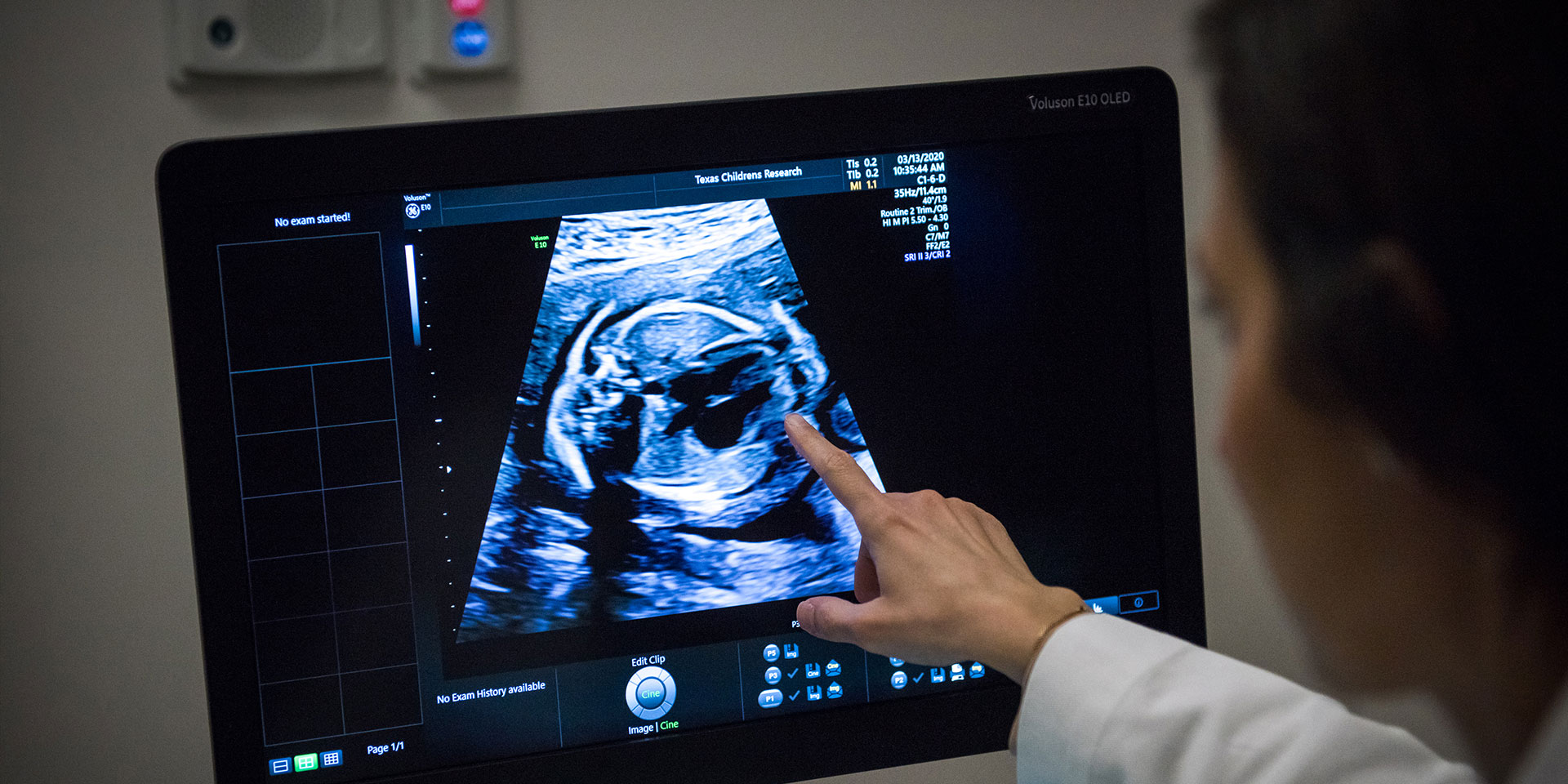For more than 30 years, Texas Children’s Fetal Cardiology program has provided comprehensive fetal cardiac care to expecting families when there is a concern for or risk of heart disease in the fetus. In partnership with Texas Children’s Fetal Center, this care includes diagnosis, counseling, delivery planning and then transition to treatment at Texas Children’s Heart Center after birth. Our collaborative model allows patients to receive the best care from a team of specialists, all in one location.
We have immense expertise and experience in fetal cardiology given our long history and high volume. We currently have 16 fetal cardiology providers highly trained in fetal cardiac imaging. Our vast experience following fetuses through gestation, delivery, infancy and adulthood gives us unique insight and ability to make accurate diagnoses and formulate the best care plans.
We strive to develop new cutting-edge treatments and therapies for fetal cardiac anomalies and have many promising clinical trials and research efforts in progress. Our program is heavily involved with the Fetal Heart Society, which is an international fetal cardiology research organization. We are leading and contributing to multiple fetal studies through this collaboration. We are also members of the International Fetal Cardiac Intervention Registry, which studies techniques and outcomes of fetal cardiac intervention across the world.
Fetal cardiac interventions
For fetuses with some cardiovascular conditions, fetal cardiac intervention is available at Texas Children’s Hospital to try to improve the physiology of the heart before birth. Texas Children’s Fetal Center is one of only a few centers in the world capable of providing the full array of fetal cardiac interventions, which involves a coordinated effort among a large, multidisciplinary team of fetal cardiologists, interventional pediatric cardiologists, congenital heart surgeons, maternal fetal medicine experts, maternal and fetal anesthesiologists, and other clinical specialists.
We offer the following fetal cardiac interventions:
Fetal arrhythmia evaluation and treatment – While some abnormal fetal rhythm problems are benign, others may result in fetal heart failure and thus pose a risk to the fetus and mother. Medical therapy is customized for each fetus and mother. We collaborate closely with adult cardiologists to protect the safety of both fetus and mother during treatment.
Fetal hypoplastic left heart syndrome (HLHS) and related conditions – We offer three fetal cardiac interventions for babies with small left heart structures, with the type of therapy depending on the fetal heart anatomy.
- For the most severe form of fetal aortic valve stenosis,
 which may progress to HLHS, we offer a catheter-based intervention called aortic valvuloplasty. Performed by a multidisciplinary team, this procedure consists of placing a small balloon across the fetal aortic valve to enlarge it and to promote blood flow through and growth of the left side of the heart.
which may progress to HLHS, we offer a catheter-based intervention called aortic valvuloplasty. Performed by a multidisciplinary team, this procedure consists of placing a small balloon across the fetal aortic valve to enlarge it and to promote blood flow through and growth of the left side of the heart. - For fetuses with HLHS or mitral valve dysplasia and a restrictive
 or intact atrial septum, we offer fetal atrial septal intervention. In this catheter-based intervention, either a balloon or a stent is placed across the atrial septum of the heart to decrease the pressure in the left atrium and to help the fetal lungs recover before birth.
or intact atrial septum, we offer fetal atrial septal intervention. In this catheter-based intervention, either a balloon or a stent is placed across the atrial septum of the heart to decrease the pressure in the left atrium and to help the fetal lungs recover before birth. - For fetuses with small left-sided structures who may need neonatal
 heart surgery but do not meet the criteria for the above procedures, we are conducting an experimental study protocol called chronic maternal hyperoxygenation. This treatment involves providing daily home oxygen for expectant mothers to promote fetal left heart growth.
heart surgery but do not meet the criteria for the above procedures, we are conducting an experimental study protocol called chronic maternal hyperoxygenation. This treatment involves providing daily home oxygen for expectant mothers to promote fetal left heart growth.


